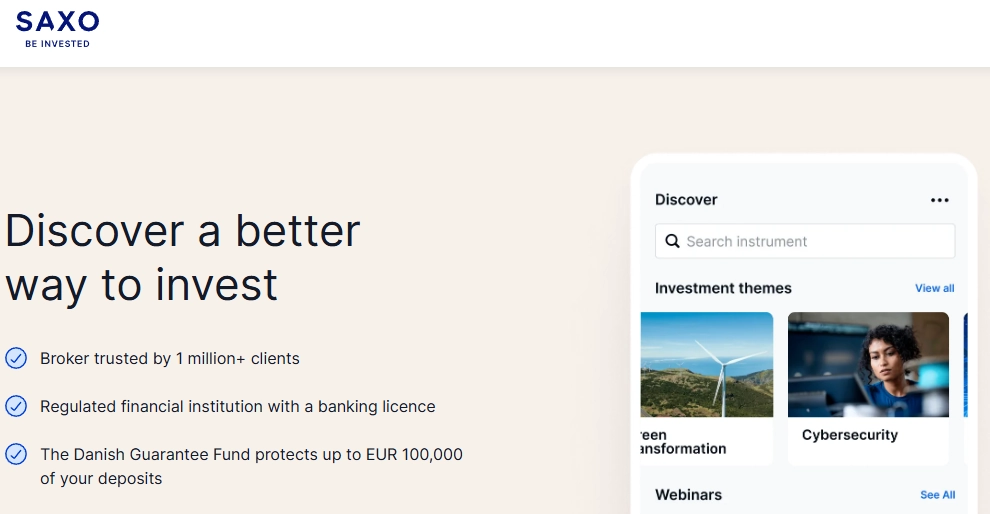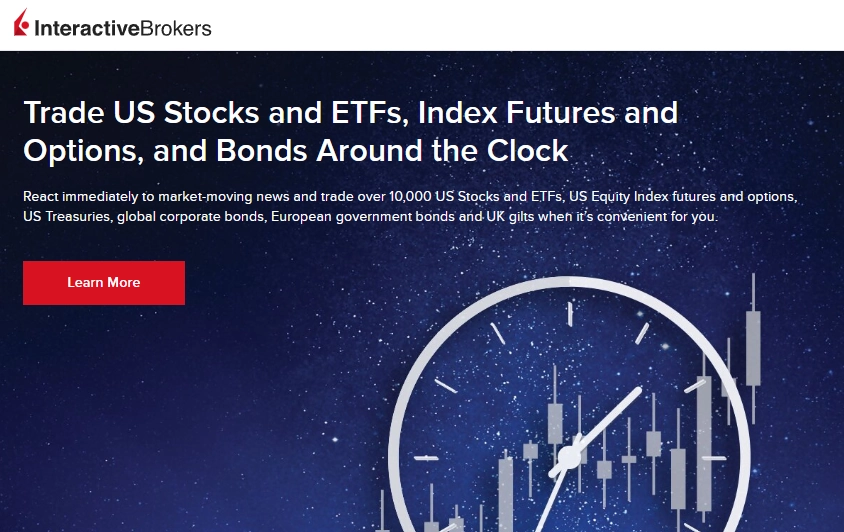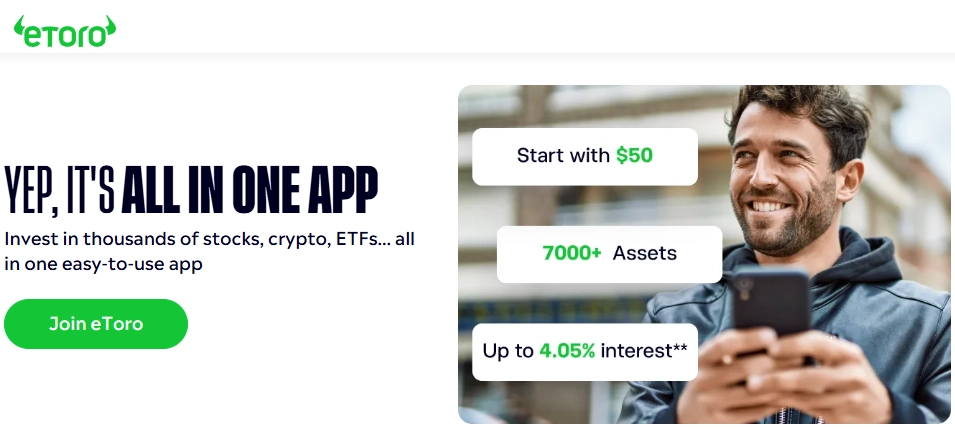CFD trading regulated broker TOP for 2025
Best CFD Brokers of 2025: Your Complete Guide to Regulated Trading Platforms
Finding the best CFD broker in 2025 requires careful consideration of regulation, trading costs, platform reliability, and customer service. With the financial landscape evolving rapidly, selecting a regulated CFD broker has become more crucial than ever for protecting your investment capital.
This comprehensive review examines the top CFD trading platforms available in 2025, focusing on brokers that maintain strict regulatory compliance and offer competitive trading conditions. Each broker on this list operates under legitimate regulatory frameworks, and importantly, none of the brokers featured are scams – they're all established, trustworthy platforms with proven track records.
Our analysis considers factors such as regulatory oversight, trading costs, available instruments, platform technology, and overall user experience to help you make an informed decision about your CFD trading journey.
FP Markets: Award-Winning Trading Excellence

FP Markets stands out as one of the most comprehensive CFD brokers in the current market, offering access to over 10,000 underlying assets across multiple asset classes. This Australian-regulated broker has built a reputation for combining competitive pricing with professional-grade infrastructure.
Key Features:
- Over 10,000 tradeable instruments
- Multiple regulatory licenses (ASIC, CySEC, FSCA)
- MetaTrader 4/5 and proprietary platform options
- Competitive spreads starting from 0.0 pips
Pros:
- ✅ Extensive asset coverage across all major markets
- ✅ Strong regulatory framework with multiple licenses
- ✅ Professional trading conditions with institutional-grade execution
- ✅ Comprehensive educational resources and market analysis
- ✅ Flexible account types for different profiles
Cons:
- ❌ Higher minimum deposit compared to some competitors
- ❌ Limited social features
- ❌ Complex fee structure for beginners
Minimum Deposit: $100
Saxo Bank: Premium Institutional-Grade Trading

Saxo Bank represents the premium end of CFD, offering access to an impressive 36,000 instruments across global markets. This Danish investment bank brings institutional-quality services to retail CFD traders, though at a premium price point.
Key Features:
- 36,000 tradeable instruments
- Full banking license and top-tier regulation
- Advanced proprietary trading platform (SaxoTraderGO/PRO)
- Direct market access and prime brokerage services
Pros:
- ✅ Unmatched instrument diversity and market access
- ✅ Bank-level security and regulatory protection
- ✅ Professional research and market insights
- ✅ Advanced trading tools and analytics
- ✅ Multiple platform options for different styles
Cons:
- ❌ High minimum deposit requirement
- ❌ Premium pricing structure
- ❌ May be overwhelming for beginner traders
Minimum Deposit: $10,000
M4Markets: Balanced Performance and Reliability

M4Markets has established itself as a reliable choice for CFD traders seeking a balanced approach to online trading. The broker offers access to over 1,000 instruments while maintaining competitive conditions and strong regulatory oversight.
Key Features:
- 1,000 tradeable CFD instruments
- CySEC regulation ensuring EU compliance
- MetaTrader 4/5 platform support
- Competitive leverage up to 1:5000 for professional clients
Pros:
- ✅ Well-balanced offering suitable for various trader types
- ✅ Strong regulatory framework with CySEC oversight
- ✅ Competitive spreads and conditions
- ✅ Reliable customer support and service quality
- ✅ User-friendly platform interface
Cons:
- ❌ Smaller instrument selection compared to larger brokers
- ❌ Limited proprietary platform options
- ❌ Fewer advanced tools
Minimum Deposit: $5
Interactive Brokers: Technology Pioneer

Interactive Brokers brings decades of trading technology innovation to the CFD market, offering sophisticated tools and direct market access that appeals to serious traders and institutions. Their platform technology sets industry standards for execution quality and order management.
Key Features:
- 5,000 CFD instruments with direct market access
- Advanced proprietary trading platform (Trader Workstation)
- Competitive margin rates and financing costs
- Global market access across multiple exchanges
Pros:
- ✅ Industry-leading trading technology and execution
- ✅ Comprehensive market access and deep liquidity
- ✅ Advanced order types and risk management tools
- ✅ Transparent pricing structure
- ✅ Strong regulatory framework (SEC, FINRA, others)
Cons:
- ❌ Complex platform may intimidate beginners
- ❌ Variable minimum deposit requirements
- ❌ Limited educational resources for new traders
Minimum Deposit: $0-$10,000 (varies by region)
eToro: Social Trading Innovation

eToro revolutionized online by introducing social trading features that allow users to follow and copy successful traders. With over 2,000 CFD instruments and a user-friendly approach, eToro appeals particularly to newer traders looking to learn from experienced investors.
Key Features:
- 2,000 CFD instruments including stocks, commodities, and indices
- Innovative social and copy trading features
- User-friendly proprietary platform
- Low minimum deposit requirement
Pros:
- ✅ Unique social features and copy trading
- ✅ Low barrier to entry with $10 minimum deposit
- ✅ User-friendly platform designed for accessibility
- ✅ Strong brand recognition and regulatory compliance
- ✅ Diverse asset selection including cryptocurrencies
Cons:
- ❌ Higher spreads compared to specialized brokers
- ❌ Limited advanced tools
- ❌ Withdrawal fees may apply
Minimum Deposit: $10
Compare Top CFD Brokers
|
CFD Broker |
Range of Underlying Assets |
Min Deposit |
Min Contract Size |
Max Leverage (Retail) |
Max Leverage (Pro) |
|
FP Markets |
10,000 |
$100 |
0.01 lots |
1:30 |
1:500 |
|
Saxo Bank |
36,000 |
$10,000 |
1 share/unit |
1:30 |
1:100 |
|
M4Markets |
1,000 |
$250 |
0.01 lots |
1:30 |
1:500 |
|
Interactive Brokers |
5,000 |
$0-$10,000 |
0.01 lots or 1 unit |
1:30 |
1:100 |
|
eToro |
2,000 |
$10 |
1 share/unit |
1:30 |
1:400 |
Choosing the Right Broker: Key Factors to Consider
Selecting the best broker 2025 requires careful evaluation of multiple factors that align with your trading style, experience level, and financial goals. The right choice can significantly impact your trading success and overall experience.
1. Regulation and Trustworthiness
Regulatory oversight remains the most critical factor when choosing a CFD broker. Legitimate brokers operating in major jurisdictions must comply with strict capital requirements, segregate client funds, and maintain transparent business practices.
Look for brokers regulated by reputable authorities such as the FCA (UK), ASIC (Australia), CySEC (Cyprus), or SEC (USA). These regulators impose stringent requirements that protect client interests and ensure fair trading conditions. Additionally, check for membership in investor compensation schemes that may protect your funds up to certain limits.
The regulatory landscape has evolved significantly, with enhanced consumer protection measures introduced across major jurisdictions. This evolution means that choosing a properly regulated broker provides stronger safeguards than ever before.
2. Trading Costs and Fees
Understanding the complete fee structure is essential for accurate profit and loss calculations. CFD brokers typically generate revenue through spreads, commissions, overnight financing charges, and various administrative fees.
Spreads represent the difference between buy and sell prices and vary significantly between brokers and instruments. Some brokers offer fixed spreads for predictable costs, while others provide variable spreads that may tighten during high liquidity periods.
Commission structures differ substantially across brokers. Some charge per-trade commissions alongside tight spreads, while others incorporate costs into wider spreads. Consider your trading frequency and typical position sizes when evaluating cost structures.
3. Available Instruments
The range of available CFD instruments directly impacts your trading opportunities and portfolio diversification potential. Leading brokers offer CFDs on stocks, indices, commodities, currencies, and increasingly, cryptocurrencies.
Consider whether the broker provides access to your preferred markets and instruments. Some traders require extensive international stock coverage, while others focus on major indices and forex pairs. Specialized instruments like commodity CFDs or bond CFDs may be important for certain trading strategies.
Market depth and liquidity vary significantly between brokers, particularly for less common instruments. Established brokers typically provide better execution quality and tighter spreads on popular instruments.
4. Trading Platforms
Platform reliability, functionality, and user experience significantly impact your trading effectiveness. Most brokers offer MetaTrader 4/5, which provides comprehensive charting tools, technical indicators, and automated trading capabilities.
Proprietary platforms may offer unique features or superior integration with broker services, but consider the learning curve involved. Mobile trading capability has become essential, with many traders requiring full functionality across desktop and mobile platforms.
Advanced order types, risk management tools, and real-time data quality vary between platforms. Professional traders often require sophisticated order management capabilities, while beginners may prioritize simplicity and educational resources.
5. Customer Support
Quality customer support becomes crucial when technical issues or account problems arise, particularly during volatile market conditions. Evaluate response times, support channels, and the expertise level of support staff.
Consider the broker's support hours relative to your trading schedule. Traders active during Asian or American sessions require brokers that provide adequate support coverage during those periods.
Language support and local phone numbers may be important factors depending on your location and preferences. Some brokers provide dedicated relationship managers for larger accounts.
6. Deposit and Withdrawal Process
Efficient deposit and withdrawal processes ensure smooth account management and access to your funds when needed. Leading brokers support multiple payment methods including bank transfers, credit cards, and electronic wallets.
Processing times vary significantly between payment methods and brokers. Electronic methods typically offer faster processing, while bank transfers may take several business days. Understanding these timeframes helps with cash flow planning.
Withdrawal fees and minimum amounts differ substantially between brokers. Some brokers absorb processing costs, while others pass fees to clients. Consider how frequently you plan to withdraw funds when evaluating these costs.